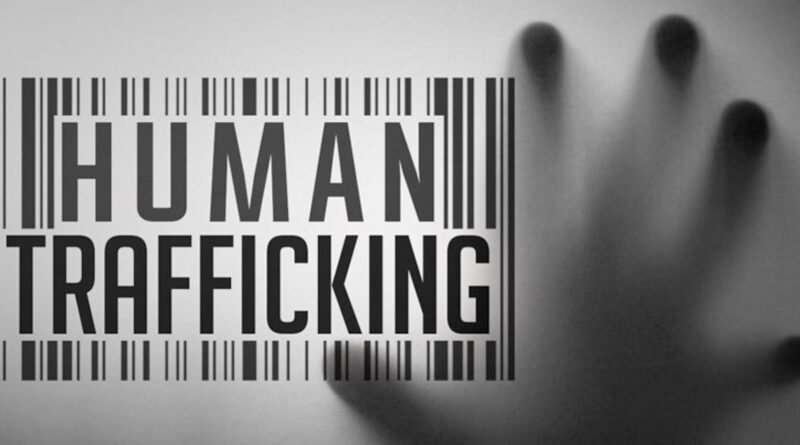Leveraging Social Networking to Combat Modern Slavery & Human Trafficking
Leveraging Social Networking to Combat Modern Slavery & Human Trafficking
Jeff Allen, Tara Zimmerman, and Sudeshana Ghose
Human trafficking remains a pernicious, pervasive, and multifaceted global issue, demanding innovative approaches to raise awareness and intervene to prevent its occurrence. Social networking platforms present a powerful yet underutilized tool to increase efforts. Existing research underscores the promise of these platforms in amplifying awareness and intervention efforts.
Despite growing global initiatives, a significant awareness of modern slavery persists in our globally connected society. Individuals remain uninformed about the indicators, risks, and prevalence of human trafficking in their communities. Additionally, social media can disseminate misleading, incomplete, or false information, further complicating awareness efforts. Traditional campaigns, while valuable, struggle to achieve the reach and engagement necessary in today’s digitally connected society.
Social networking platforms provide an unparalleled digital opportunity to expand the reach of anti-trafficking efforts. Yet, we must address critical barriers such as information saturation, public skepticism, and algorithms prioritizing entertainment over educational or impactful social content. There is an urgent need for innovative, research-driven strategies that harness the unique capabilities of social media to educate, engage, and mobilize individuals in the fight against human trafficking.
Modern slavery and human trafficking are fundamentally different from smuggling, though they are often mistakenly conflated. Smuggling is a border-related crime involving a mutual agreement between individuals to violate immigration laws for the purpose of relocation. In contrast, human trafficking involves the exploitation of individuals through recruitment, transportation, or labor under conditions of force, fraud, or coercion. Slavery occurs when individuals are compelled to work against their will and are unable to leave due to the control exerted over them (National Human Trafficking Training and Technical Assistance Center, 2015).
Human trafficking is a non-consensual crime that does not necessarily involve the movement of individuals across international, state, or local jurisdictions. The Trafficking Victims Protection Act of 2000 defines human trafficking through three key components: Action, Means, and Purpose. Over 50 million people worldwide are enslaved (Walk Free, 2025). This issue transcends geographical boundaries and affects individuals regardless of gender, age, sexual orientation, race, ethnicity, culture, or immigration status. Its widespread nature makes it a critical societal problem that demands comprehensive research-based solutions.
Online traffickers identify potential victims and entrap victims for labor or sex. They lure victims through social media platforms such as Instagram and Snapchat, and “55% of victims of domestic minor sex trafficking say they first made contact with their trafficker Online” (The Alliance to Counter Crime Online, 2020, p. 1). Kevin Bale, in a 2010 TED talk, states:
I met slaveholders, and I looked very deeply into slave-based businesses because this is an economic crime. People do not enslave people to be mean to them. They do it to make a profit. And I’ve got to tell you, what I discovered in the world on four continents was depressingly familiar.
The Polaris Project (2024) provides a complete data analysis report from the 2021 Human Trafficking Hotline. Below are a few examples to help information researchers understand the overall problem. The top three recruitment locations include the Internet (72%), Other locations (19%), and School (5%) (p. 16). The Internet category includes dating sites, Facebook (28%), Instagram, and misc. Chat rooms, other mobile apps, and other/not specified. The #1 and #4 access points include Interaction with Friends/Family and access to Mobile Apps/social media (p. 21)
Social networking platforms are uniquely positioned to reach vast audiences and engage individuals in meaningful discussions about human trafficking. However, the success of anti-trafficking campaigns on these platforms depends on factors such as the quality of campaign content, platform algorithms, and the target audience’s demographics.
To truly harness the power of social networking for this cause, further research is needed to evaluate how such campaigns impact individuals’ knowledge, attitudes, and behaviors concerning human trafficking. Information science researchers possess the specialized expertise to investigate and enhance strategies for leveraging these platforms. By doing so, they can play a crucial role in raising awareness, supporting prevention efforts, and exposing modern slave traffickers, thereby addressing one of society’s most pressing challenges.
Note: The article is based on a poster presented at the 87th Annual Meeting of the Association for Information Science and Technology
References
Alliance to Counter Crime Online (2020). Human Trafficking: How Social Media Fuels Modern Day Slavery. Washington, DC: Author https://static1.squarespace.com/static/6451b3769ff664542bf67ca9/t/64bf1ebfc811f72cc16c8c35/1690246849353/human%2Btrafficking%2Bfact%2Bsheet%2Bacco.pdf
Bale, K. (2010, February). How to combat modern slavery [Video/transcript]. TED Conferences. https://www.ted.com/talks/kevin_bales_how_to_combat_modern_slavery/transcript?language=en
Trafficking Victims Protection Act of 2000, 22 U.S.C. § 7101 (2000). https://uscode.house.gov/view.xhtml?req=granuleid:USC-prelim-title22-section7101&num=0&edition=prelim#:~:text=The%20purposes%20of%20this%20chapter,and%20to%20protect%20their%20victims.
Polaris (2024). Polaris Analysis of 2021 Data from the National Human Trafficking Hotline. https://polarisproject.org/wp-content/uploads/2020/07/Polaris-Analysis-of-2021-Data-from-theNational-Human-Trafficking-Hotline.pdf
United Nations (1948). Universal Declaration of Human Rights. New York, NY: Author https://www.un.org/sites/un2.un.org/files/2021/03/udhr.pdf
Walk Free (2025). Global Slavery Index: Global Findings. https://www.walkfree.org/global-slavery-index/findings/global-findings/
Cite this article in APA as: Allen, J., Zimmerman, T., & Ghose, S. Leveraging social networking to combat modern slavery & human trafficking. (2025, January 21). Information Matters, Vol. 5, Issue 1. https://informationmatters.org/2025/01/leveraging-social-networking-to-combat-modern-slavery-human-trafficking/
Authors
-
Dr. Jeff M. Allen is an internationally recognized scholar of wisdom that assists organizations to the make evidence-based decisions that fosters individual wisdom and cultivated collective wisdom. He serves as a Regents Professor of Information Science at the University of North Texas. Latest Book: Fostering Wisdom at Work https://amzn.to/39PCu6k.
View all posts -
Dr. Tara Zimmerman is Computing Research Association CI2020 Fellow funded through the National Science Foundation and working at the University of Texas at Austin iSchool. She is continuing to develop her Social Noise framework in the context of misinformation and COVID-19, as well as working on projects through Good Systems, the UT Grand Challenge Initiative. Tara completed her PhD in Information Science at the University of North Texas where she focused on the qualitative study of social media information behavior. www.tarazimmerman.net.
View all posts





